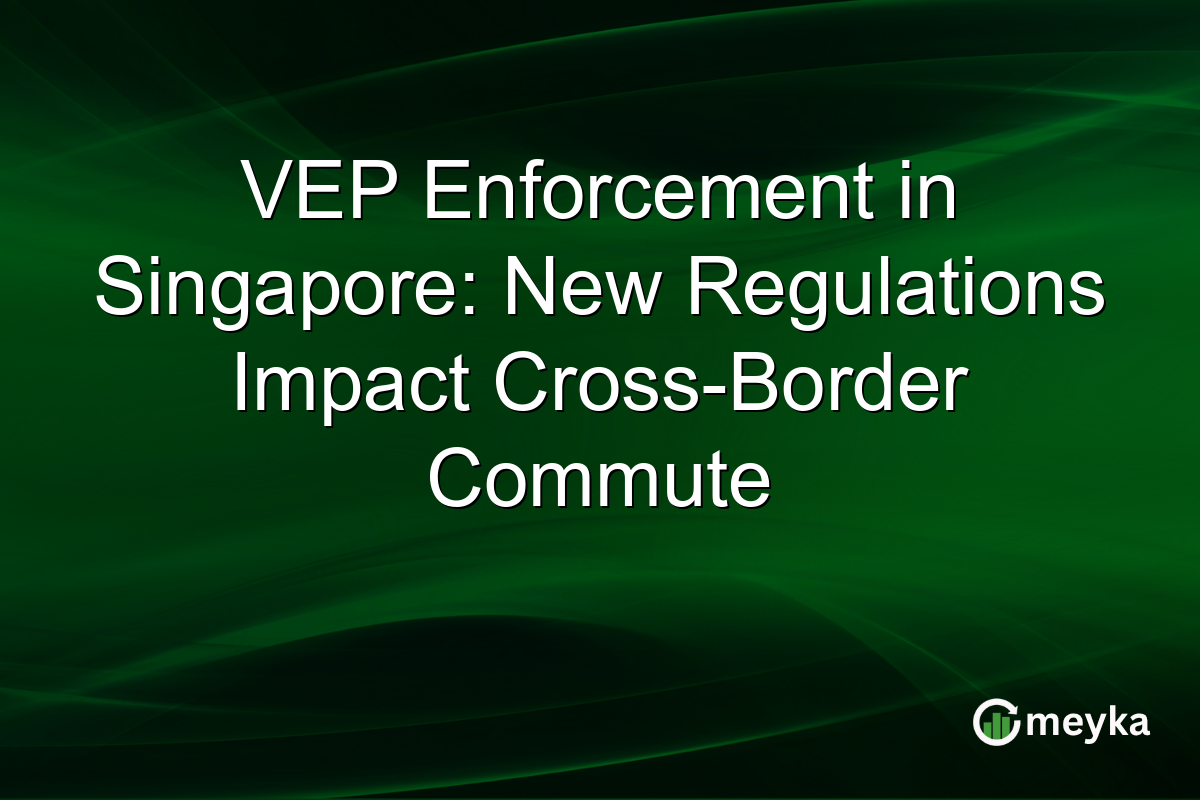VEP Enforcement in Singapore: New Regulations Impact Cross-Border Commute
Starting November 15, Singapore will more rigorously enforce Vehicle Entry Permit (VEP) regulations on foreign-owned vehicles. This attention to VEP enforcement in Singapore underscores the government’s efforts to regulate cross-border traffic between Malaysia and Singapore efficiently. As commuter traffic increases, these regulations aim to ease congestion and improve compliance among drivers. The policy shift has garnered interest, particularly from frequent commuters relying on smooth passage between the two neighboring countries.
Continue Reading on Meyka
This article is available in full on our main platform. Get access to complete analysis, stock insights, and more.
Read Full Article →





